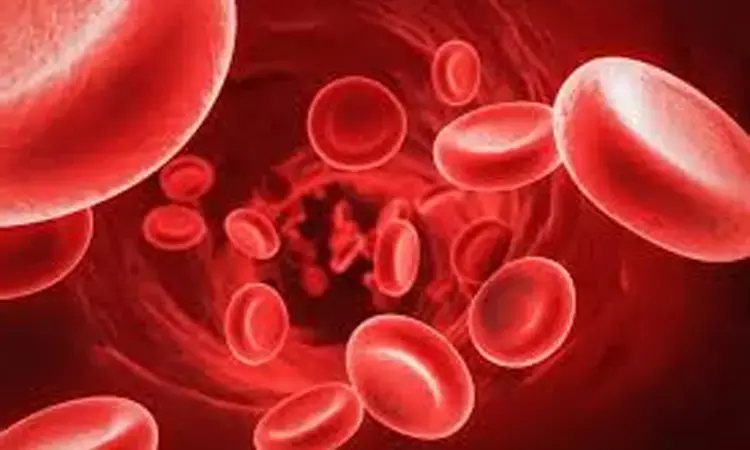- Home
- Medical news & Guidelines
- Anesthesiology
- Cardiology and CTVS
- Critical Care
- Dentistry
- Dermatology
- Diabetes and Endocrinology
- ENT
- Gastroenterology
- Medicine
- Nephrology
- Neurology
- Obstretics-Gynaecology
- Oncology
- Ophthalmology
- Orthopaedics
- Pediatrics-Neonatology
- Psychiatry
- Pulmonology
- Radiology
- Surgery
- Urology
- Laboratory Medicine
- Diet
- Nursing
- Paramedical
- Physiotherapy
- Health news
- Fact Check
- Bone Health Fact Check
- Brain Health Fact Check
- Cancer Related Fact Check
- Child Care Fact Check
- Dental and oral health fact check
- Diabetes and metabolic health fact check
- Diet and Nutrition Fact Check
- Eye and ENT Care Fact Check
- Fitness fact check
- Gut health fact check
- Heart health fact check
- Kidney health fact check
- Medical education fact check
- Men's health fact check
- Respiratory fact check
- Skin and hair care fact check
- Vaccine and Immunization fact check
- Women's health fact check
- AYUSH
- State News
- Andaman and Nicobar Islands
- Andhra Pradesh
- Arunachal Pradesh
- Assam
- Bihar
- Chandigarh
- Chattisgarh
- Dadra and Nagar Haveli
- Daman and Diu
- Delhi
- Goa
- Gujarat
- Haryana
- Himachal Pradesh
- Jammu & Kashmir
- Jharkhand
- Karnataka
- Kerala
- Ladakh
- Lakshadweep
- Madhya Pradesh
- Maharashtra
- Manipur
- Meghalaya
- Mizoram
- Nagaland
- Odisha
- Puducherry
- Punjab
- Rajasthan
- Sikkim
- Tamil Nadu
- Telangana
- Tripura
- Uttar Pradesh
- Uttrakhand
- West Bengal
- Medical Education
- Industry
RBC transfusion during hospitalization does not cause thrombosis: Study

USA: Red blood cell (RBC) transfusion does not increase the risk of thrombosis in most hospitalized patients, finds a recent study in the American Journal of Hematology.
RBC transfusion is one of the common procedure that hospitalized patients undergo. Blood exposure from another human is associated with multiple risks, including alloimmunization, infectious disease transmission, and transfusion reactions. Previous studies have also suggested an association between transfusion and risk for arterial or venous thrombosis.
Lisa Baumann Kreuziger, MS Blood Research Institute, Milwaukee, WI, and colleagues therefore determined the association between RBC transfusion and thrombosis in hospitalized patients using the Recipient Database from the NHLBI Recipient Epidemiology and Donor Evaluation Study‐III.
Thrombotic event was defined as a hospitalization with an arterial or venous thrombosis ICD‐9 code and administration of a therapeutic anticoagulant or antiplatelet agent. The study excluded patients patients with a history of thrombosis or a thrombosis within 24 hours of admission.
Key findings of the study include:
- Of 657,412 inpatient admissions, 10.2% patients received at least one RBC transfusion.
- Two percent (12,927) of patients experienced a thrombosis. Of these, 2,587 developed thrombosis after RBC transfusion.
- In unadjusted analyses, RBC transfusion was associated with an increased thrombosis risk [HR=1.3].
- After adjustment for surgical procedures, age, sex, hospital, and comorbidities, no association between RBC transfusion on risk of venous and arterial thrombosis was found [HR 1.0].
"In this patient cohort, after adjustment for age, sex, medical comorbidities, and surgical procedures, RBC transfusion was not associated with a risk for inpatient arterial and venous thrombosis. Thrombosis risk may be therefore driven by underlying comorbidities and surgical procedures and not RBC transfusion," concluded the authors.
The study, "Red Blood Cell Transfusion Does Not Increase Risk of Venous or Arterial Thrombosis During Hospitalization," is published in the American Journal of Hematology.
DOI: https://onlinelibrary.wiley.com/doi/abs/10.1002/ajh.26038
Dr Kamal Kant Kohli-MBBS, DTCD- a chest specialist with more than 30 years of practice and a flair for writing clinical articles, Dr Kamal Kant Kohli joined Medical Dialogues as a Chief Editor of Medical News. Besides writing articles, as an editor, he proofreads and verifies all the medical content published on Medical Dialogues including those coming from journals, studies,medical conferences,guidelines etc. Email: drkohli@medicaldialogues.in. Contact no. 011-43720751


